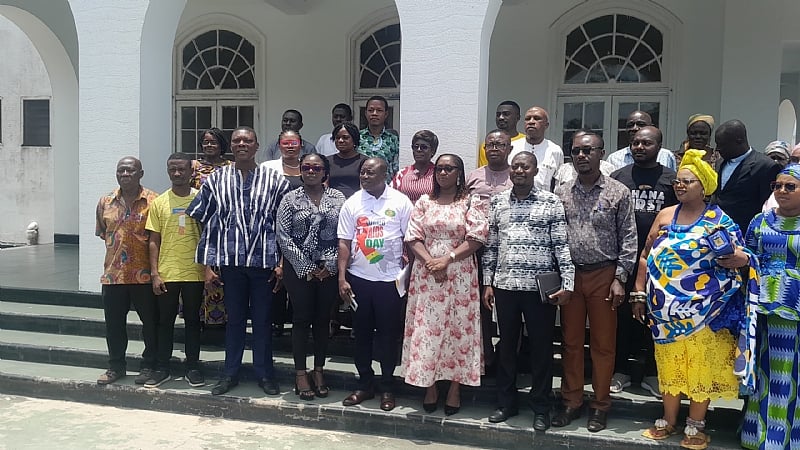Ghana is embarking on a significant initiative to bolster its domestic HIV response by establishing local manufacturing capabilities for essential commodities. Currently, the nation relies heavily on imports for approximately 80% of its HIV-related products, including condoms, testing kits, and antiretroviral medications. This dependence creates vulnerabilities in supply chains and drains valuable foreign exchange reserves. The Ghana AIDS Commission is spearheading this effort, recognizing the urgent need for self-reliance, particularly in the face of dwindling international funding for HIV/AIDS programs. This strategic move aims to secure a consistent and affordable supply of these vital resources, strengthening the nation’s long-term capacity to combat the epidemic.
The Commission is actively engaging with domestic pharmaceutical companies to lay the groundwork for local production, with the goal of commencing operations as early as next year. Collaborations are underway with organizations like GIZ, which will provide technological support to enhance the manufacturing capabilities of these companies. This technical assistance is crucial for ensuring that locally produced commodities meet international quality standards and effectively address the specific needs of Ghana’s HIV/AIDS program. The initiative extends beyond HIV commodities to encompass vaccine production through the West Africa Vaccines Centre. This broader approach further reduces reliance on imports and fosters regional health security.
In addition to manufacturing, the Commission is prioritizing improvements in the national healthcare system’s diagnostic capacity. Strengthening capabilities for viral load testing, drug resistance monitoring, and other essential laboratory analyses is crucial for effective patient management and surveillance of the epidemic. These enhanced diagnostic tools will provide healthcare professionals with the information needed to tailor treatment regimens, track the emergence of drug resistance, and ultimately improve patient outcomes. This multifaceted approach, combining local production with enhanced diagnostics, reflects a comprehensive strategy to strengthen Ghana’s overall HIV response.
However, despite these proactive measures, challenges remain. The Central Region, for instance, has witnessed a concerning rise in new HIV infections, attributed in part to risky behaviors among the youth, including drug abuse and unprotected sex. This highlights the urgent need for intensified public awareness campaigns and targeted interventions to address these underlying drivers of the epidemic. Reactivating HIV clubs in schools and community centers can play a vital role in educating young people about prevention strategies and promoting responsible behavior. Furthermore, addressing the stigma associated with HIV remains crucial, as it contributes to treatment defaulting among patients receiving free antiretroviral therapy.
Stakeholders acknowledge the progress made in combating HIV/AIDS over the years, but recognize that the fight is far from over. Behavioral change remains a critical challenge, with new infections occurring daily. A renewed focus on community engagement and collaboration is essential to reinvigorate prevention efforts and address the evolving dynamics of the epidemic. The Director General’s efforts to mobilize stakeholders and foster collaboration across sectors, including government agencies, civil society organizations, the private sector, and educational institutions, are crucial for achieving a cohesive and impactful response.
Strengthening partnerships and coordination among all stakeholders involved in the HIV response is paramount. The Ghana AIDS Commission, the Ministry of Gender, human rights institutions, civil society organizations, local government authorities, the private sector, and corporate entities all have a critical role to play. By working together, sharing resources, and coordinating efforts, these groups can effectively address the complex challenges posed by the HIV/AIDS epidemic. A unified approach that leverages the strengths of each stakeholder is essential to drive down new infections, reduce prevalence rates, and ultimately achieve the goal of eliminating HIV/AIDS as a public health threat. The Commission’s focus on collaborative action underscores the understanding that a multi-sectoral approach is crucial for success.














